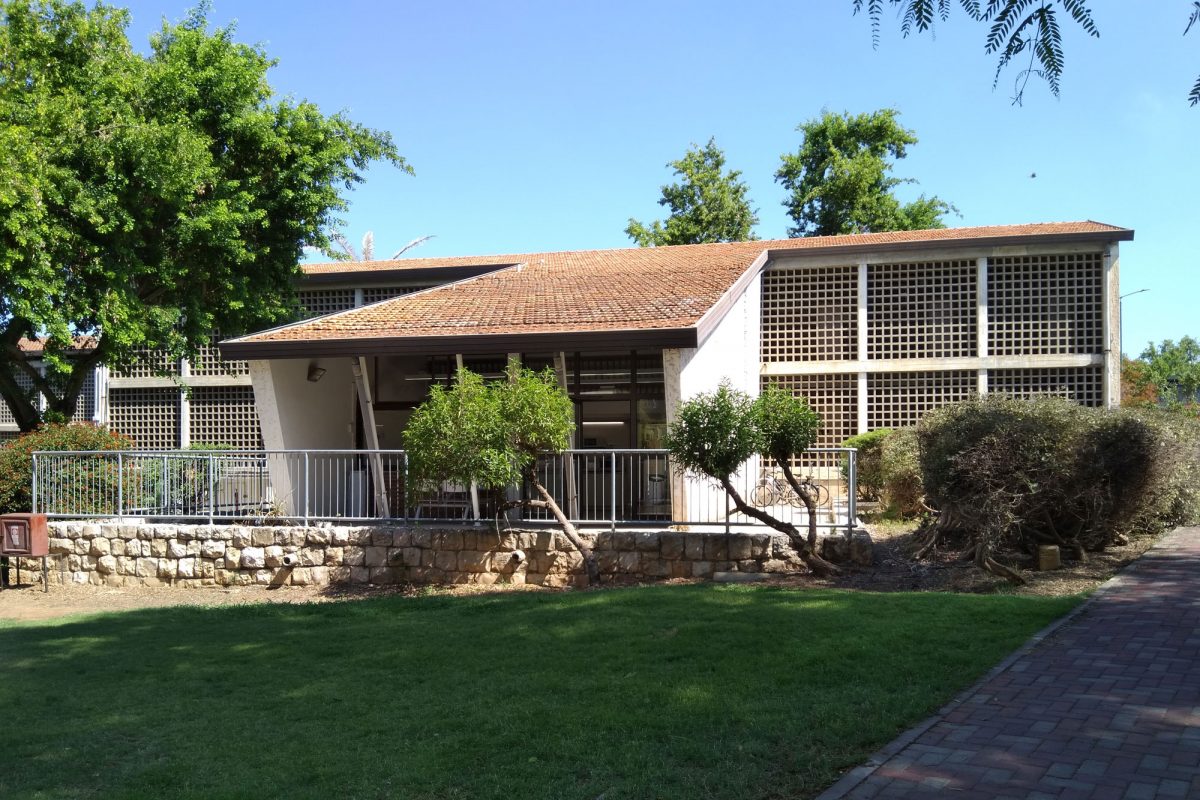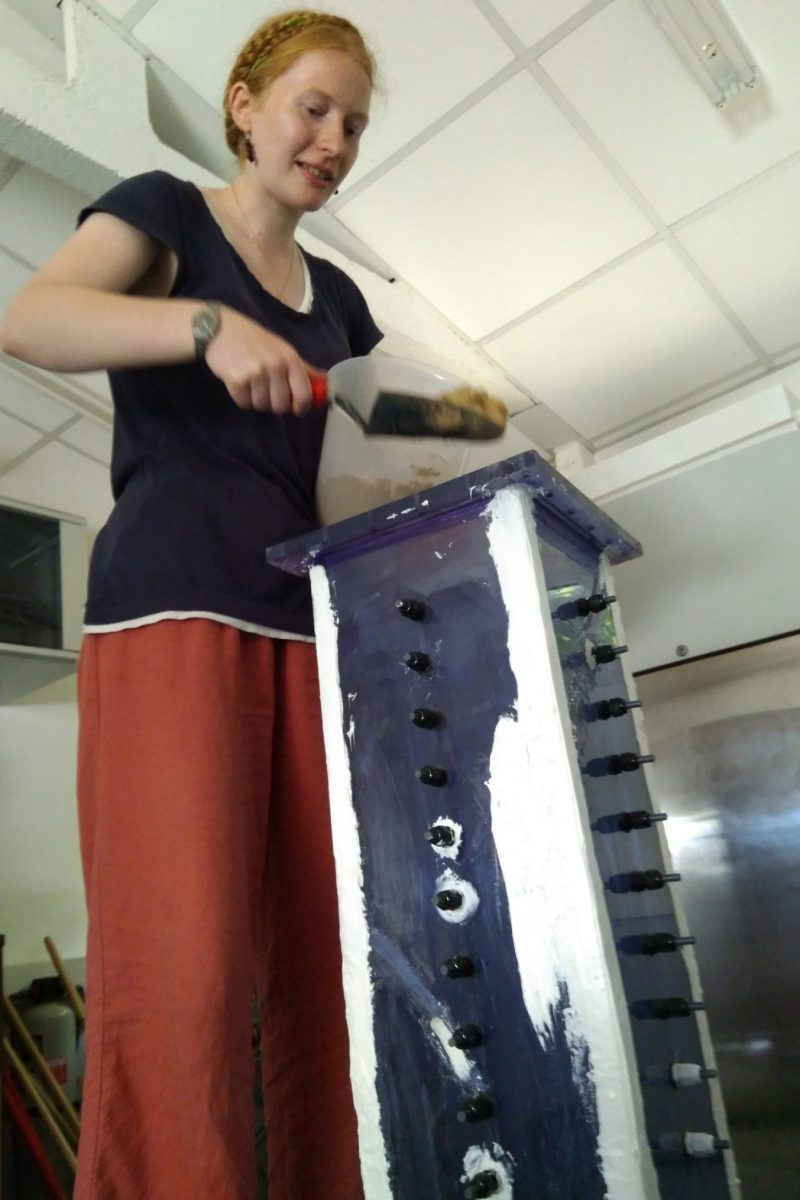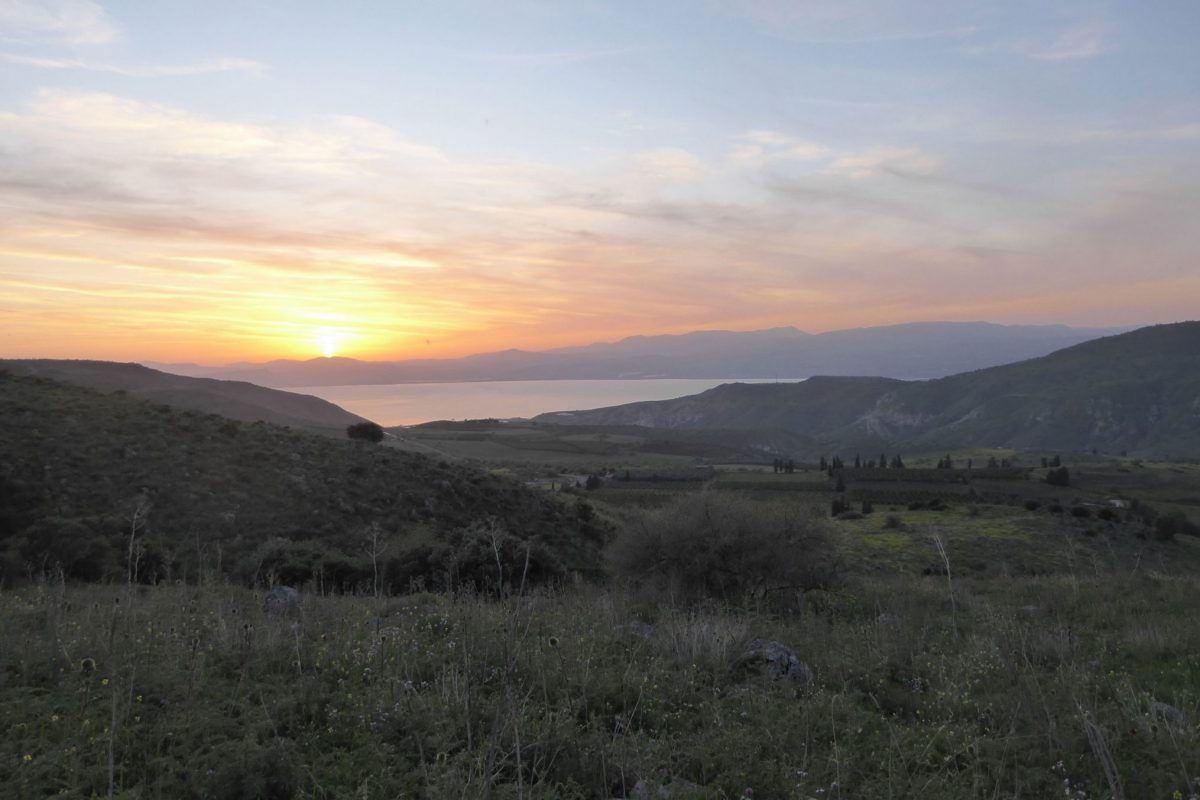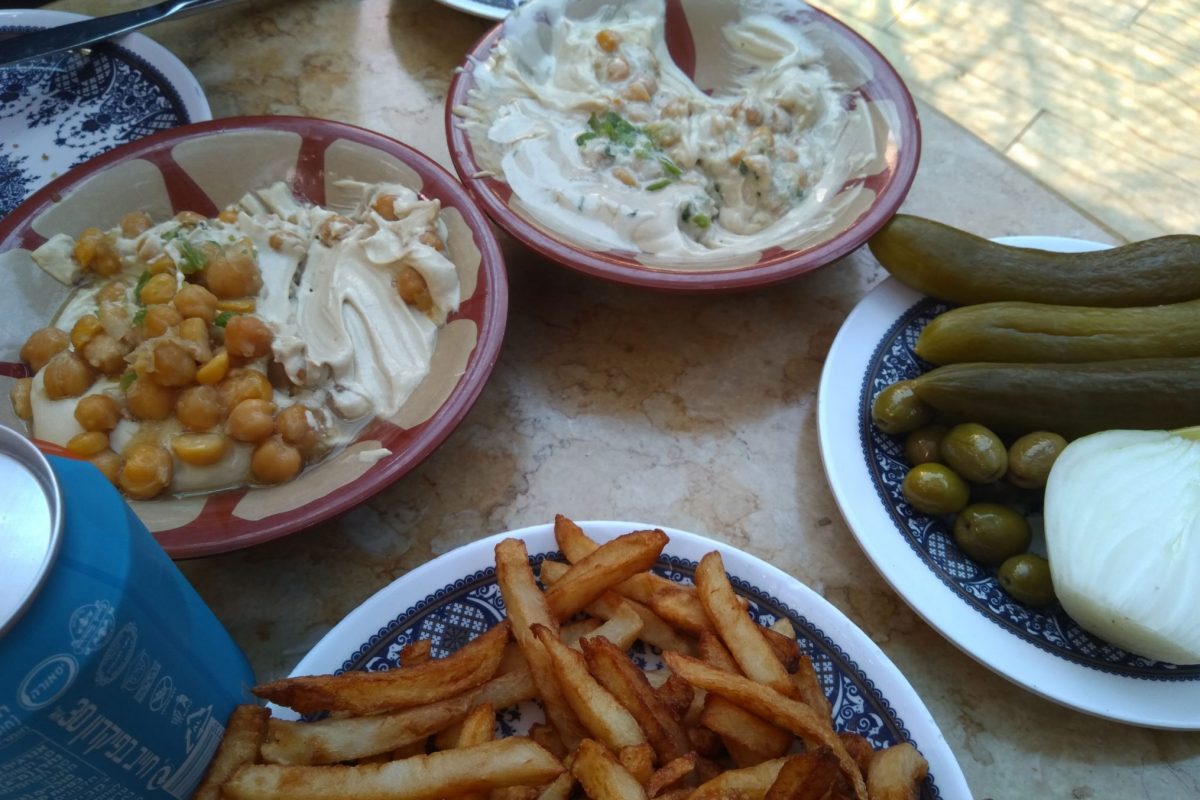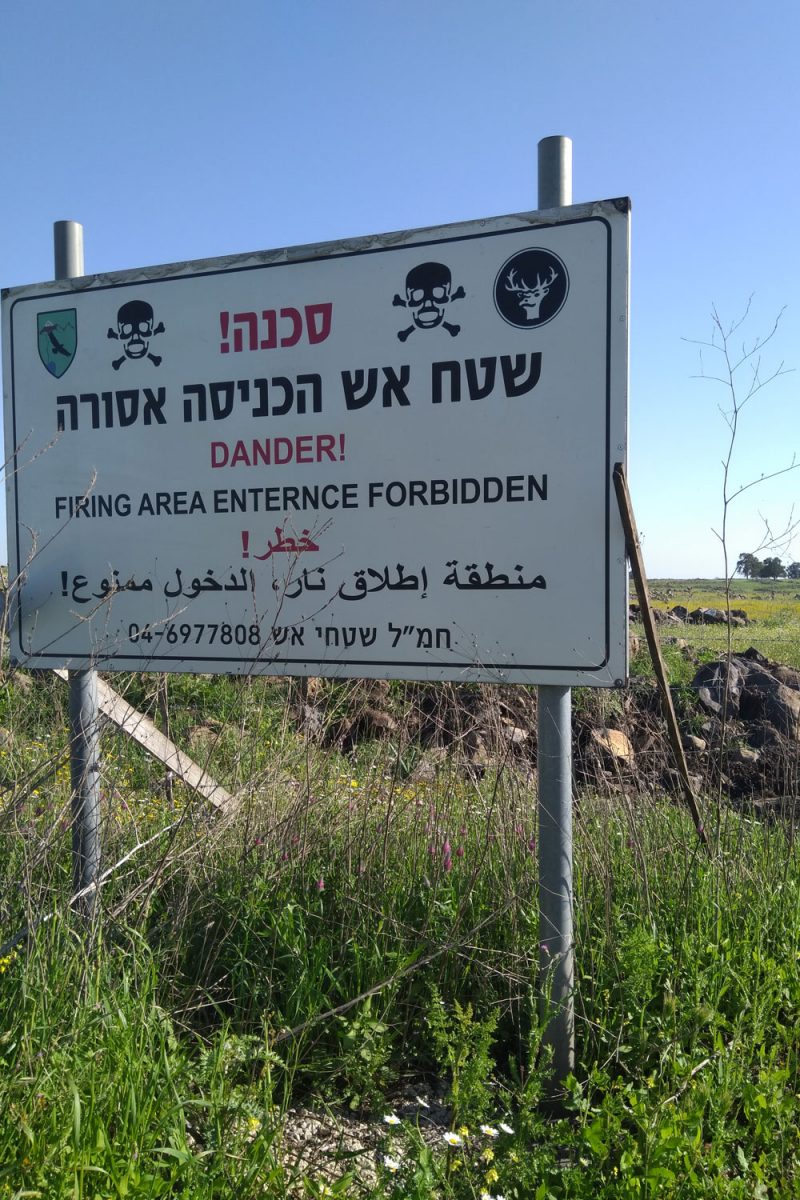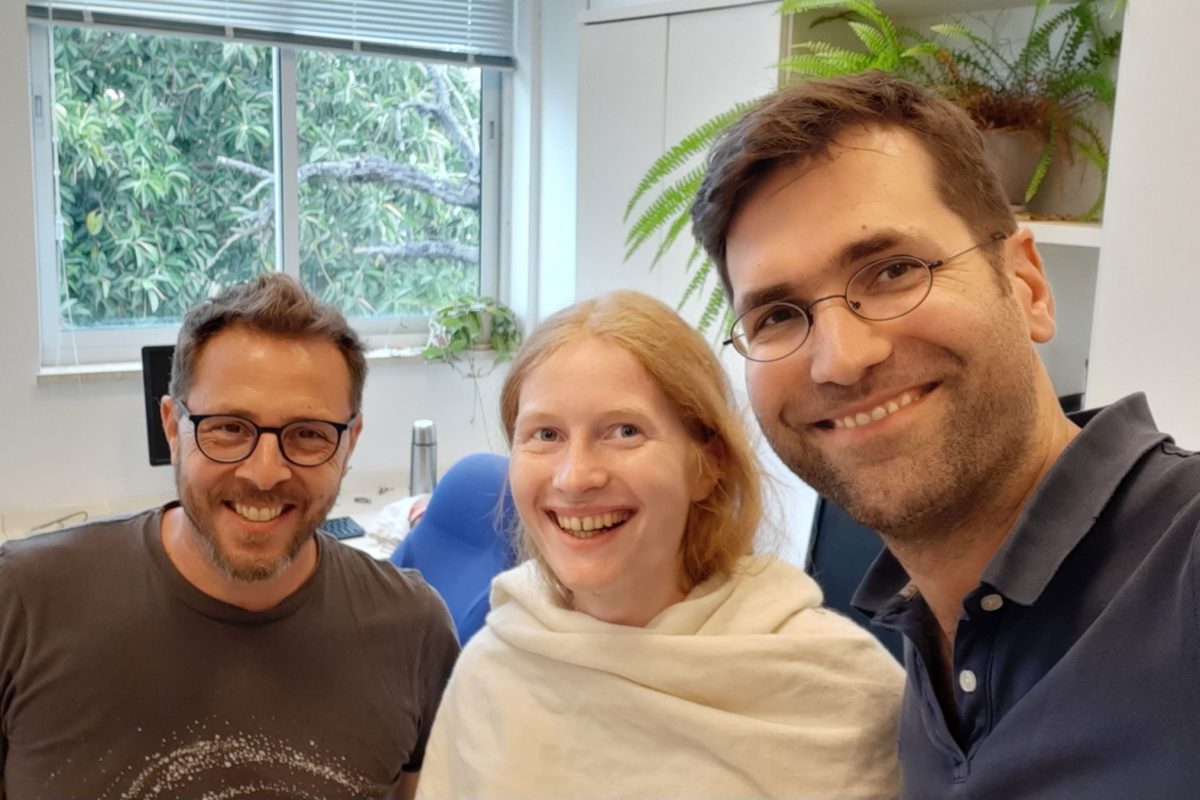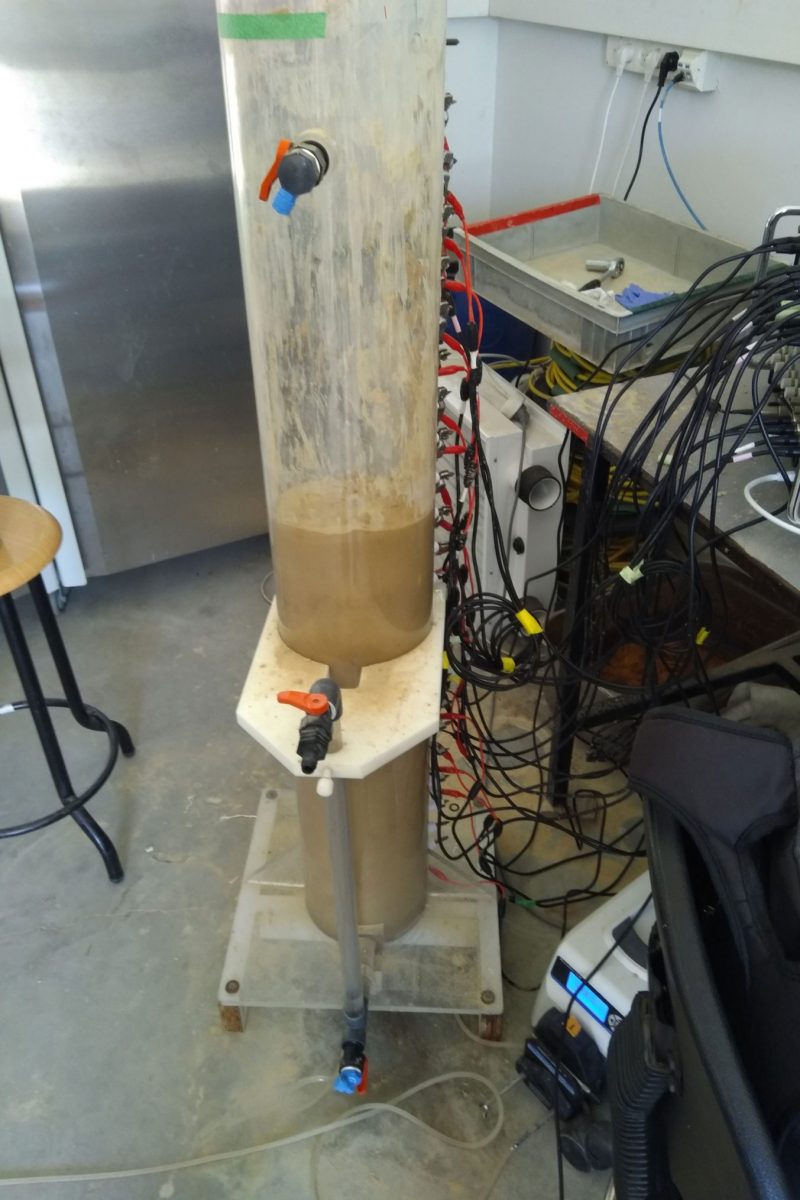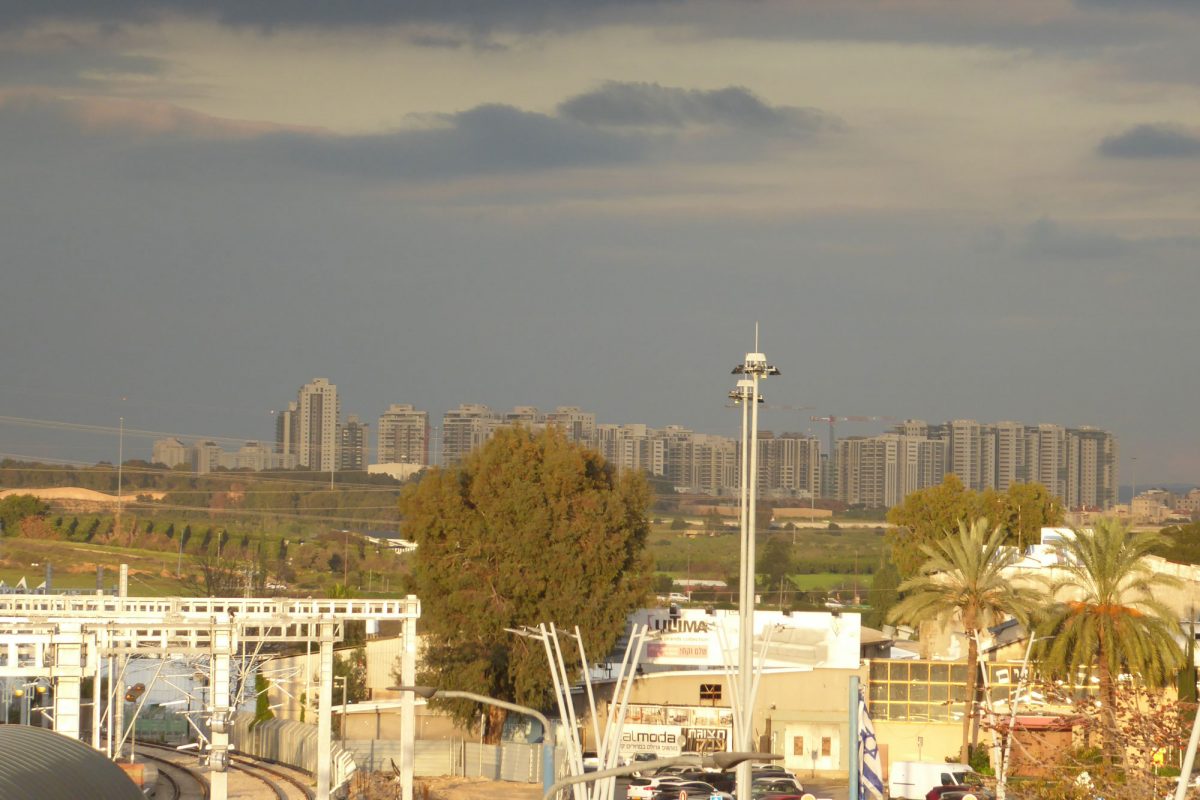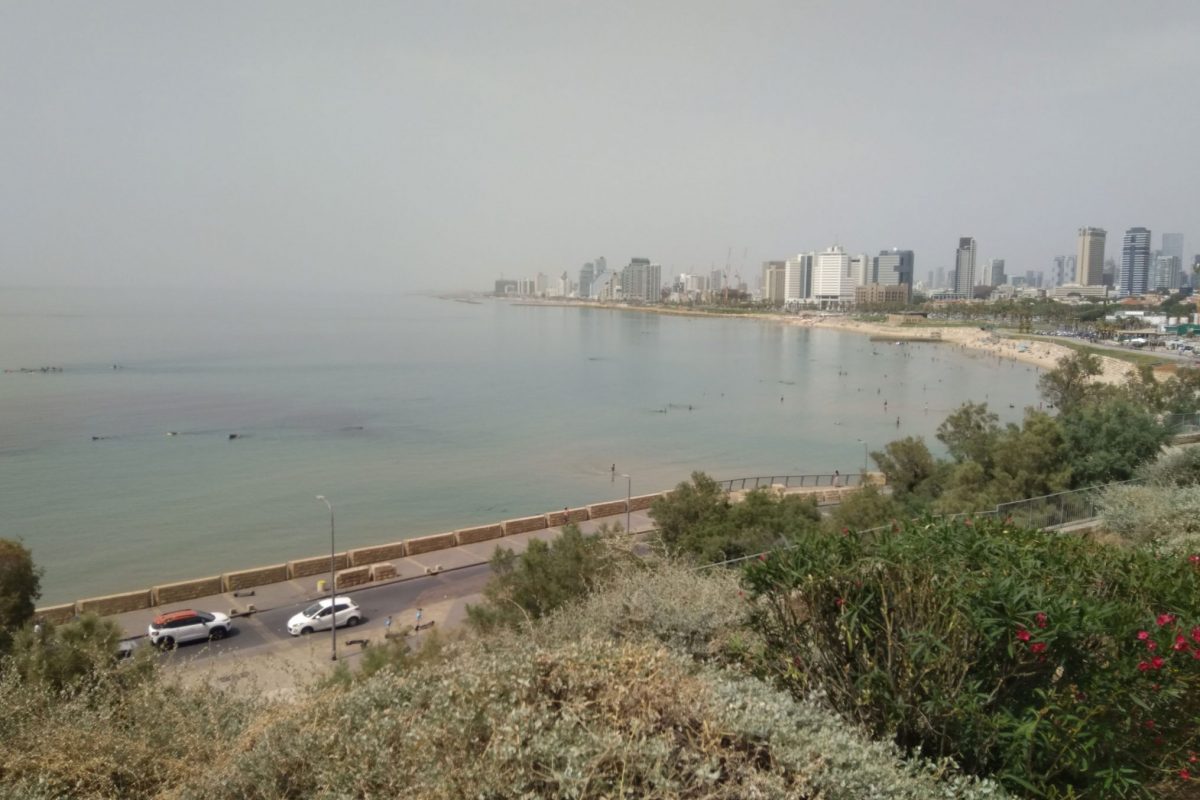Mail from … Israel Master's student Ruth Glebe traveled to Rehovot, in Israel, for a research internship
General Information
This is where I live at the moment:
I spent a total of five months in Rehovot, a medium-sized city south of Tel Aviv in Israel. I was able to realize my stay with the Erasmus+ scholarship for internships abroad.
This is what I do in Rehovot:
I have completed an internship at the Hebrew University of Jerusalem, more precisely at the Robert H Smith Faculty of Agriculture, Food and Environment. Here I do not attend lectures, but work in the laboratory of the “Soil and Hydrology” group of Prof. Dr. Nimrod Schwartz. I already know the geophysical method I use in the lab to investigate soil samples (Spectral Induced Polarization) from Braunschweig. At TU Braunschweig, I systematically studied sediment samples from lakes in Mexico.
Here I am now trying to find out how the measurement signal changes when water flows through my soil samples or when the sediment has different hydrophobicity (water repellent property). Since it is very dry in Israel, a lot of the focus here is on irrigation. Our geophysical methods can help monitor soil moisture in an efficient way, providing a basis for intelligent control of irrigation systems, for example.
This is why I decided to go abroad:
I wanted to get to know a different environment, having now been mainly in Braunschweig since the beginning of my bachelor studies. Israel and the research group of Prof. Nimrod Schwartz then offered me the most interesting combination of a captivating country and an exciting research project.
Local life
This is how I live in Rehovot:
I live in a dorm here, right on campus. In my building we are about 30 women and lots of cats. I have my own room – kitchen and bathroom are shared with everyone. I only have to walk two minutes to the office and lab, the path goes across the campus, which is wonderfully green thanks to irrigation systems.
The military is present everywhere here, although in my city it was very peaceful. Mostly, I saw the soldiers in the public transport, where they were traveling themselves and did not check anyone. However, there are security checks at every train station.
In everyday life, the conflict plays a rather small role, i.e. in my environment there was partly talk about the situation and living conditions, but for most people there are other issues that are more prominent. When there are attacks, that is of course more of an issue. For example, in between, people were advised not to use a road that was unsafe at the time. I also witnessed rocket fire with air alerts during my time in Rehovot. In general, however, I perceived the security situation in my city to be very good.
What makes researching in Israel different from researching in Germany?
In my research group in Germany, we almost all have the same academic background. Most of us are studying physics, some of them have been studying together since we started our bachelor’s degree. Here, I am the only physicist in the working group. All of us have different academic backgrounds, such as chemistry, hydrology, or soil science. That makes the exchange among each other very interesting.
Particularly typical for Israel is:
There are a lot of cats in Rehovot. They are also intentionally kept on campus. I have since learned that they keep the snakes away.
In addition, there are the light-colored houses with flat roofs that are typical for Israel. And the cities are also different from Germany. Even smaller towns have many high-rise buildings. So when you stand in a field between several places, you don’t see a lot of red roofs like in Germany, but just a lot of high-rise buildings all around.
That’s what I learned here in the first three days:
In many small stores and in the market (in Rehovot – in other cities the situation is different) very little English is spoken. After Hebrew, Russian is the next choice there – and Arabic in Arab stores.
The biggest challenge during my stay has been …
On the one hand, it’s the language. Hebrew is so far the most difficult foreign language I have started to learn. On the other hand, there is a special weekend situation here that creates challenges for me. Throughout Israel, no public transportation runs from Friday afternoon to Saturday evening. So I had to plan my weekend trips well in advance. There are small shuttles between some cities, but in those they usually only speak Arabic or Hebrew, so I had a hard time communicating.
What I will take home with me from here:
The most important and valuable thing are all the experiences and adventures I was allowed to have. I take a lot of memories with me, especially of new friendships and travels. Meanwhile, my Hebrew is also good enough that I dared to go to a bookstore. There I found some easily written books with which I can continue to practice.
Good to know
This is a local dish you definitely have to try:
Of course, hummus (with falafel!) and shawarma. In addition, there are often booths with baked goods at markets or along the streets.
Which blunder should you avoid in Israel?
As already mentioned above: You should not forget to plan your travels well on the weekend, otherwise it can easily happen that you don’t get to your destination. The Moovit app is very helpful though!
Especially for Jerusalem and other places that have a religious significance: You should find out beforehand what the rules of conduct are. For example, on some holidays you can not get into all places and clothing should be appropriate.
This is a tip I give to other students or researchers who want to go abroad:
Do it in any case, it’s worth it! Start early with the organization, especially the application for scholarships or Erasmus+ takes a while.
Especially for Israel:
- The bureaucracy here can be very annoying. Often, many phone calls are necessary. For me, it started with the embassy for obtaining a visa and continued with the university. The only thing that helps is perseverance.
- For public transportation, there is the RavKav card, which you load with money and can then use in all buses and trains. Alternatively, you can pay directly with the Moovit app.
- Credit cards are widely used here, only at markets cash is sometimes necessary.
- The best time to go to Israel is between March and May – after the rainy season in winter and before it gets too hot in summer.
By the way…
During my stay in Israel, the supervisor of my project from Braunschweig also visited me. Prof. Dr. Matthias Bücker from the Institute of Geophysics and Extraterrestrial Physics had brought the exciting research project in Israel to my attention and established the contact. As part of a one-week teaching mobility funded by the Erasmus+ programme, he held a two-day course here, in which I learned together with students from Hebrew University how we can use finite element modeling to better understand measured geophysical signals. Of course, we also used the time for an intensive exchange about my previous measurement results and the one or other excursion to geological sights of the country.

